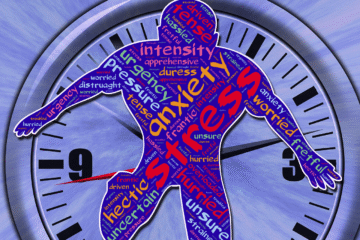
Stress is often thought of as simply a mental experience, but if you’ve ever dealt with a “stress headache” or caught yourself clenching your jaw, you know it permeates the body. Stress keeps score of our mental battles, even when our thoughts seem calm. We often approach stress through thinking, talking, or journaling, but sometimes the real solution lies in addressing our nervous system.
When your body perceives a threat, it releases cortisol and adrenaline to help you respond. In emergencies, this response is beneficial. However, chronic stress — from emotional suppression, overwork, or survival mode — can leave your body trapped in that heightened state.
Common areas where stress hides include the jaw and face, where clenching and tension can manifest, often subconsciously, as a way to hold it together. Likewise, the neck and shoulders are frequent storage zones for stress, particularly for those who feel the weight of responsibility for everything and everyone. In the chest and gut, you may experience shallow breathing, tightness, or stomach discomfort, as these are indicators of your vagus nerve reacting to long-term stress.
Chronic stress and elevated cortisol levels can have serious long-term consequences, as highlighted by a Harvard Health study (2020). Effects include increased inflammation, weakened immune response, digestive disorders, sleep disruptions, and memory problems. In essence, your body doesn’t merely feel tired; it functions less effectively, unable to cope as it should.
You don’t have to quit your job or isolate yourself to combat stress. Instead, focus on manageable ways to release it and care for your body. Start listening to what your body needs and prioritize your well-being. Acknowledge the signs, implement self-care practices, and gradually learn to navigate stress more healthily. By taking control of both your mental and physical responses


